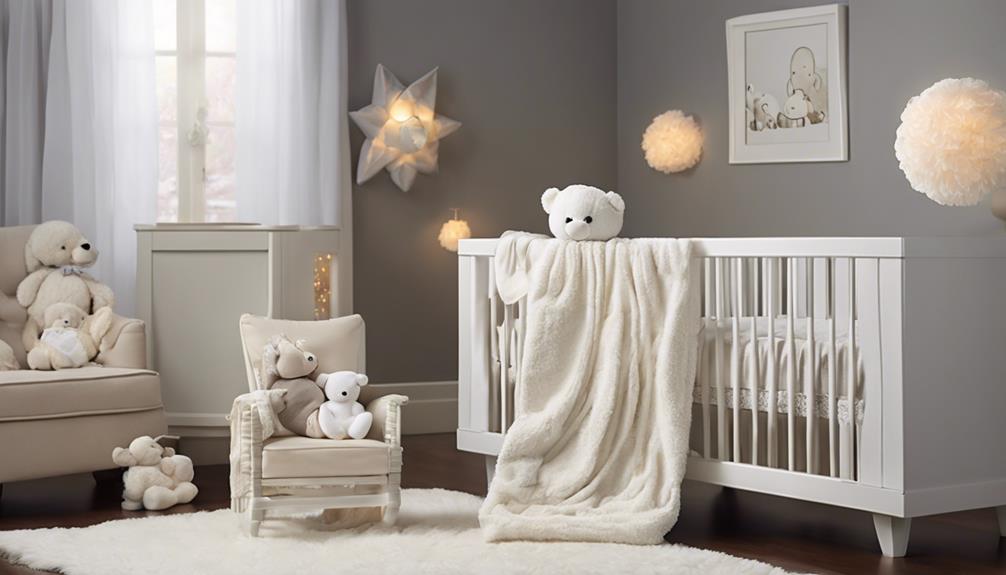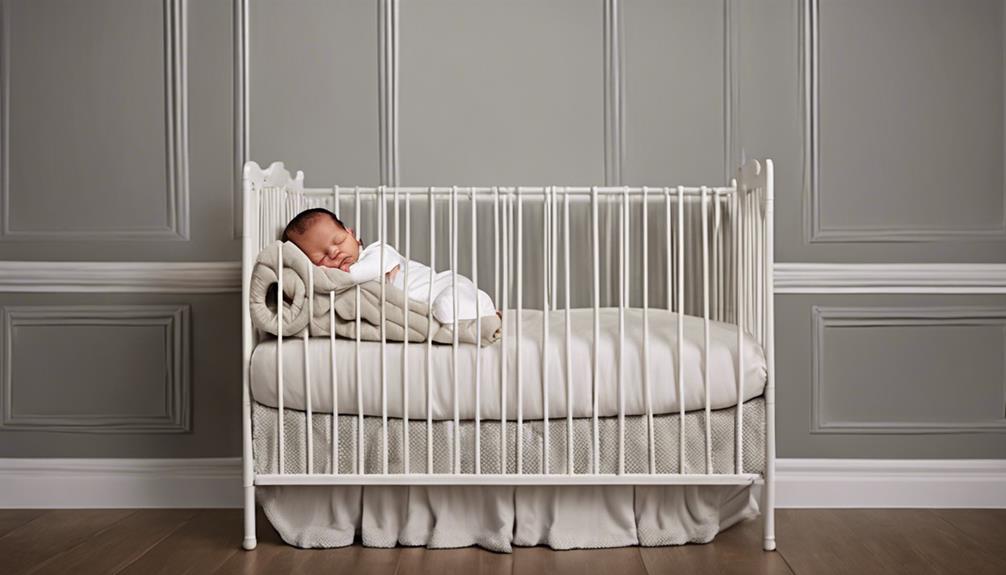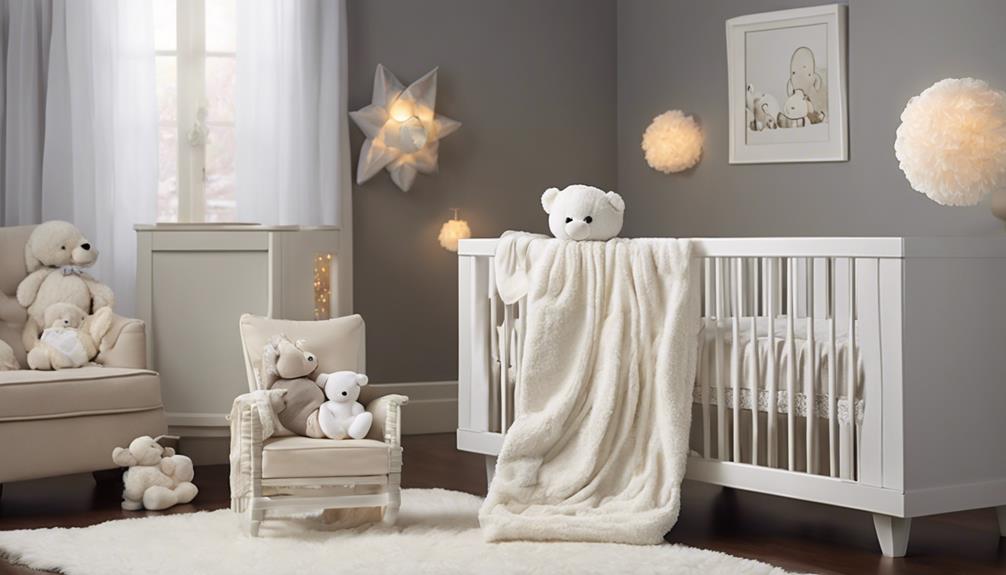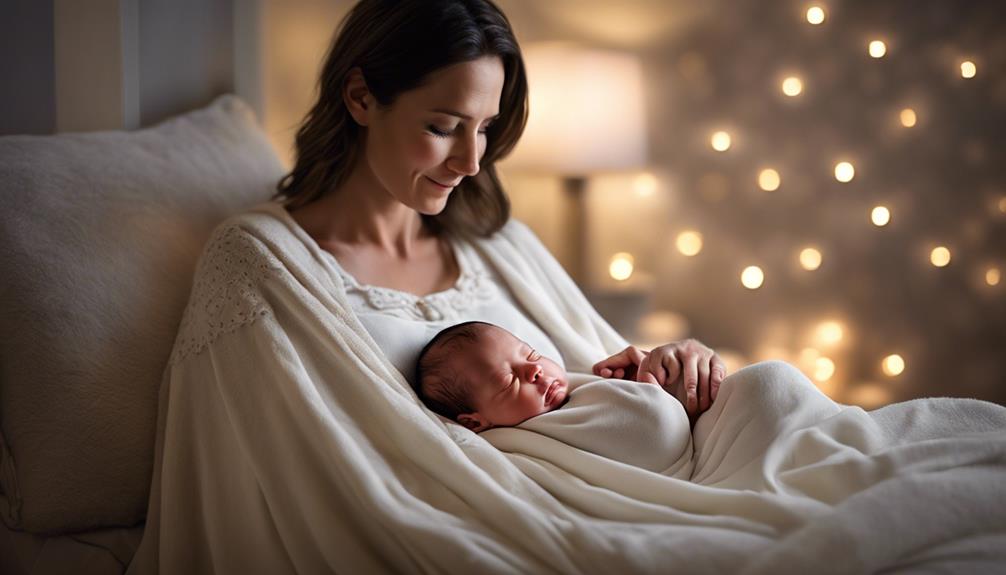When it comes to dressing your newborn for sleep, we empathize with the concerns about striking the right balance between warmth and safety.
Finding the perfect sleep attire can be a challenging task for many parents, but fret not, our step-by-step guide will help you navigate through the nuances of dressing your little one for a restful night ahead.
From selecting the ideal fabric to ensuring a comfortable sleep environment, our practical tips and expert advice will assist you every step of the way.
Key Takeaways
- Choose breathable cotton sleepwear for safe and comfortable rest.
- Maintain room temperature between 68-72°F for optimal sleep conditions.
- Swaddle with care using lightweight blankets for security and warmth.
- Monitor baby's comfort and safety cues to adjust clothing and environment accordingly.
Choosing the Right Sleepwear
When selecting sleepwear for your newborn, opt for breathable fabrics like 100% cotton to guarantee proper air circulation and comfort.
It's essential to prioritize your baby's safety by choosing snug-fitting sleepwear that reduces the risk of suffocation during sleep.
Avoid outfits with strings, ribbons, or loose parts that could pose choking hazards.
For a safer alternative to traditional blankets, consider using sleep sacks or wearable blankets.
Dressing your baby in layers allows you to easily adjust their clothing based on the room temperature, ensuring they stay cozy without overheating.
By following these guidelines and selecting the right sleepwear, you can create a safe and comfortable sleeping environment for your little one.
Setting Up a Cozy Sleep Environment

To make sure your newborn's best comfort and safety during sleep, it is important to create a cozy sleep environment with the right room temperature and bedding choices. Keeping the room temperature between 68-72°F is ideal for safe infant sleeping. Opt for sleepwear made of breathable 100% cotton to help regulate your baby's body temperature throughout the night. Using sleep sacks with TOG ratings guarantees your baby sleeps comfortably while preventing overheating. Avoid heavy blankets and hats, as they can pose risks of suffocation and overheating, contributing to SIDS and safe infant sleep concerns.
| Room Temperature | Sleepwear Material | TOG Rating |
|---|---|---|
| 68-72°F | 100% Cotton | TOG-rated |
Swaddling Your Newborn Safely
Ensuring your newborn's safety and comfort during sleep, swaddling can be a valuable technique to help them feel secure and calm. When swaddling newborns, opt for lightweight cotton or muslin blankets to prevent overheating. Remember to always lay your baby on their back while swaddled to reduce the risk of SIDS.
It's important to stop swaddling as soon as your baby starts showing signs of rolling over, usually around 3 months of age. To make sure proper movement and prevent any restrictions, make sure the swaddle isn't too tight around their chest and hips. By following these guidelines, you can create a safe and cozy sleep environment for your little one.
Swaddling is a wonderful way to provide comfort and security to your newborn, promoting better sleep patterns and a sense of calmness.
Monitoring Your Baby's Comfort

As we dress our newborns for sleep, it's important to be vigilant in monitoring their comfort to make certain they're neither too hot nor too cold. Here are some key points to help you guarantee your baby is sleeping at a comfortable temperature:
- Signs of Overheating: Watch out for signs like sweating, damp hair, red skin, and quickened breathing, indicating your baby may be too warm.
- Signs of Being Too Cold: Look for shivering, cool skin, and bluish hands and feet, which suggest your baby might be feeling too cold.
- Temperature Check: Feel your baby's neck, back, or chest to assess their body temperature and adjust their clothing layers accordingly.
- Room Environment: Make sure the room temperature is suitable; if your baby is overheating, adjust the room temperature and always place them on their back on a firm surface for safe sleep.
Ensuring Safe Sleeping Practices

Maintaining a safe sleep environment for your newborn is important to reduce the risk of Sudden Infant Death Syndrome (SIDS). When dressing your baby for bed, it's essential to take safe sleeping practices into account. Dress your baby in lightweight clothing suitable for the room temperature. Avoid overdressing to prevent overheating, a risk factor for SIDS. Always place your baby on their back for sleep on a firm mattress in a safety-approved crib. Make sure your baby's head remains uncovered during sleep to promote proper airflow and reduce the risk of suffocation. It's best to use a swaddle or sleep sack instead of loose blankets or bedding to keep your baby warm without hazards. Below is a table summarizing key safe sleeping practices:
| Safe Sleeping Practices | Description | Importance |
|---|---|---|
| Dress Baby Appropriately | Use lightweight clothing for the room temperature | Prevent overheating |
| Place Baby on Back | Always place your baby on their back for sleep | Reduce the risk of SIDS |
| Firm Mattress | Use a firm mattress in a safety-approved crib | Provide a safe sleep space |
Conclusion
As parents, we grasp the significance of dressing our newborns for sleep in a way that keeps them safe and comfortable. By following the steps outlined in this guide, we can guarantee our little ones stay cozy and secure throughout the night.
Remember, every baby is different, so be sure to monitor your baby's comfort levels and adjust as needed. With the right sleepwear and sleep environment, we can help our newborns get the rest they need.









